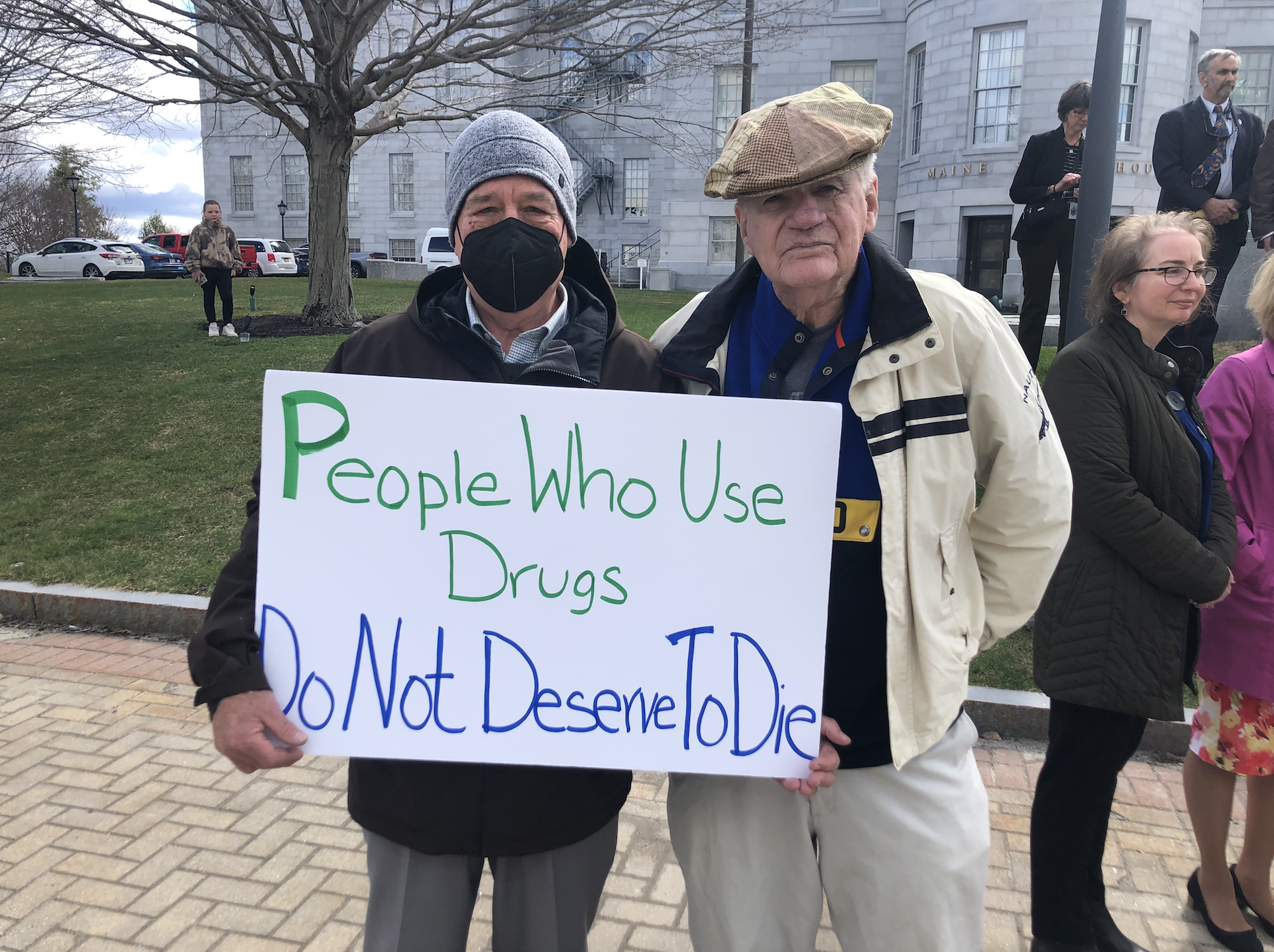On April 20, harm reduction advocates in Maine reached a deal with Democratic Governor Janet Mills to expand the state’s “Good Samaritan” law. The revised bill, which the legislature will review on April 25, ensures that people “rendering aid” during an overdose cannot be prosecuted on most nonviolent charges.
As in the rest of the United States, overdose fatalities in Maine have surged during the pandemic, with a reported increase of 23 percent from 2020 to 2021—from 502 deaths to 636. Activists have long sought to remove the fear of arrest that may stop people calling for help during an overdose.
The adapted expansion bill has been a hard-fought compromise. But the resulting legislation will be “the strongest Good Samaritan law in the nation.”
The state’s original Good Samaritan law, which took effect in 2019, protected the person overdosing and the person calling 911 from arrest, but did not cover anyone else who might be at the scene. This expansion is meant to change that, extending immunity to anyone “rendering aid”—which could apply to someone performing CPR, or administering naloxone, or providing other assistance in the critical minutes after an overdose occurs.
The adapted expansion bill, which is set to pass through the Maine House and Senate and land on the governor’s desk to sign, has been a hard-fought compromise. But the resulting legislation will be “the strongest Good Samaritan law in the nation,” Courtney Allen, the organizing director for the Maine Recovery Advocacy Project, told Filter.
The introduction of the original version of the expansion bill saw state legislators recently debate how expansive it should be. The harm reduction community supported broader language to shield the most people possible from arrest. (There were some exemptions that appear in both versions, like people committing sex crimes, for example, or endangering a child.) Once that original bill passed through the House, it ultimately passed the Senate as well.
Then it went to Governor Mills, and activists held their breath. She didn’t like the idea that the original wording could protect people who sell drugs from prosecution. But while she said she wouldn’t sign the bill in its original form, she was willing to work with advocates and legislators to land on an agreement. Together, lawmakers, the governor and harm reduction advocates agreed on the “rendering aid” language—which does include those helping on the scene of an overdose who may have also sold drugs.
“As a community organizer and harm reductionist, I was 100 percent expecting Governor Mills to veto the bill, and surprisingly, she came back very understanding with a very fair compromise that I think everyone is going to be happy with,” Kari Morissette, the executive director of the Church of Safe Injection, in Portland, Maine, told Filter.
“The victory goes to the advocates who have worked tirelessly, who have been unwavering in their commitment to saving lives.”
“I do not want to veto this measure only to have the end result be that we disagreed and made no progress at all on the Good Samaritan law,” Mills wrote in a letter to lawmakers. “I believe this is a consensus middle ground that we can all support.”
“The victory goes to the advocates who have worked tirelessly, who have been unwavering in their commitment to saving lives,” State Senator Chloe Maxmin (D-Lincoln County), who sponsored the bill, said in a press statement. “The overwhelming legislative support for this bill and the governor’s agreement to work with us show the transformation in our thinking: If we want to save lives, we must move away from a punishment-centered approach to drug use.”
“Since the beginning of this effort, we knew we faced an uphill battle,” Allen said in a press statement. “We chose collectively to move forward anyway because our loved ones need us to fight for them and fight with them. “Legislators listened, shared their own stories of loss and stood by our side as we asked Governor Mills to join us in meaningful change. And she has. Advocates across the state of Maine are celebrating the willingness of our governor to work with us. Together we have saved lives.”
Photograph courtesy of the Maine Recovery Advocacy Project




